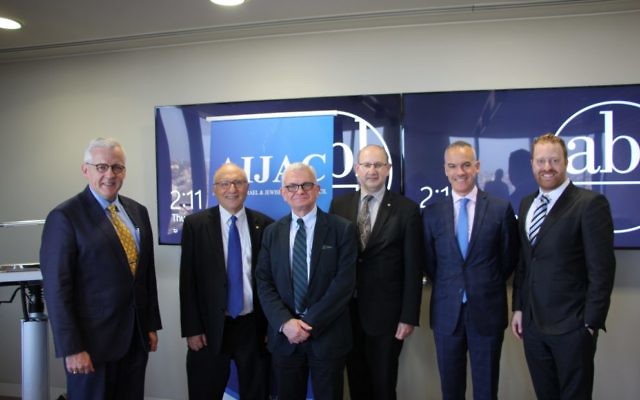Participants report back
THREE participants on the Australia/Israel & Jewish Affairs Council's recent Rambam Israel Fellowship Program – professor of international security and intelligence studies at the ANU John Blaxland, Mark Ludlow from The Australian Financial Review and senior research fellow at The Centre for Independent Studies Peter Kurti – concurred that the tour was a deeply rewarding experience, although the overarching message regarding the geopolitical situation was coloured with pessimism.

THREE participants on the Australia/Israel & Jewish Affairs Council’s recent Rambam Israel Fellowship Program – professor of international security and intelligence studies at the ANU John Blaxland, Mark Ludlow from The Australian Financial Review and senior research fellow at The Centre for Independent Studies Peter Kurti – concurred that the tour was a deeply rewarding experience, although the overarching message regarding the geopolitical situation was coloured with pessimism.
“There was hope in the Palestinian and Jewish farmers who had been working together, but the overall feeling I got from the trip was of isolation between the two parties,” said Ludlow, who, during his presentation at last month’s AIJAC luncheon, also referred to the group’s meeting with a young Palestinian cartoonist in Ramallah.
“Someone asked him whether he would let his young daughter play with a Jewish child. He became extremely angry and said he would not.
“It was this level of anger and hatred from the next generation which left me slightly despondent,” said Ludlow.
Drawing the audience’s attention to three speakers on the trip that left a strong imprint in his mind – one being Israeli journalist Ehud Yaari – Kurti remarked, “I was struck by the way in which [Ehud] spoke about the first Facebook Intifada – that the nature of resistance and protest remains the same … but the form it takes has evolved.”
In Jerusalem, a meaningful visit to the City of David – and witnessing each layer of history lying on top of another – proved to be a seminal moment of the trip for Professor Blaxland.
“It was a very powerful experience … to see some of the original foundations that were laid two-and-a-half millennia ago, followed by the work that was there two millennia ago, and the destruction and re-construction,” he said. “Coming to terms with that has left a deep impression about the complexity, the history and the importance of the stories told, the history of the people there, and the claim that the Jewish people have over that place.”
SOPHIE DEUTSCH

comments